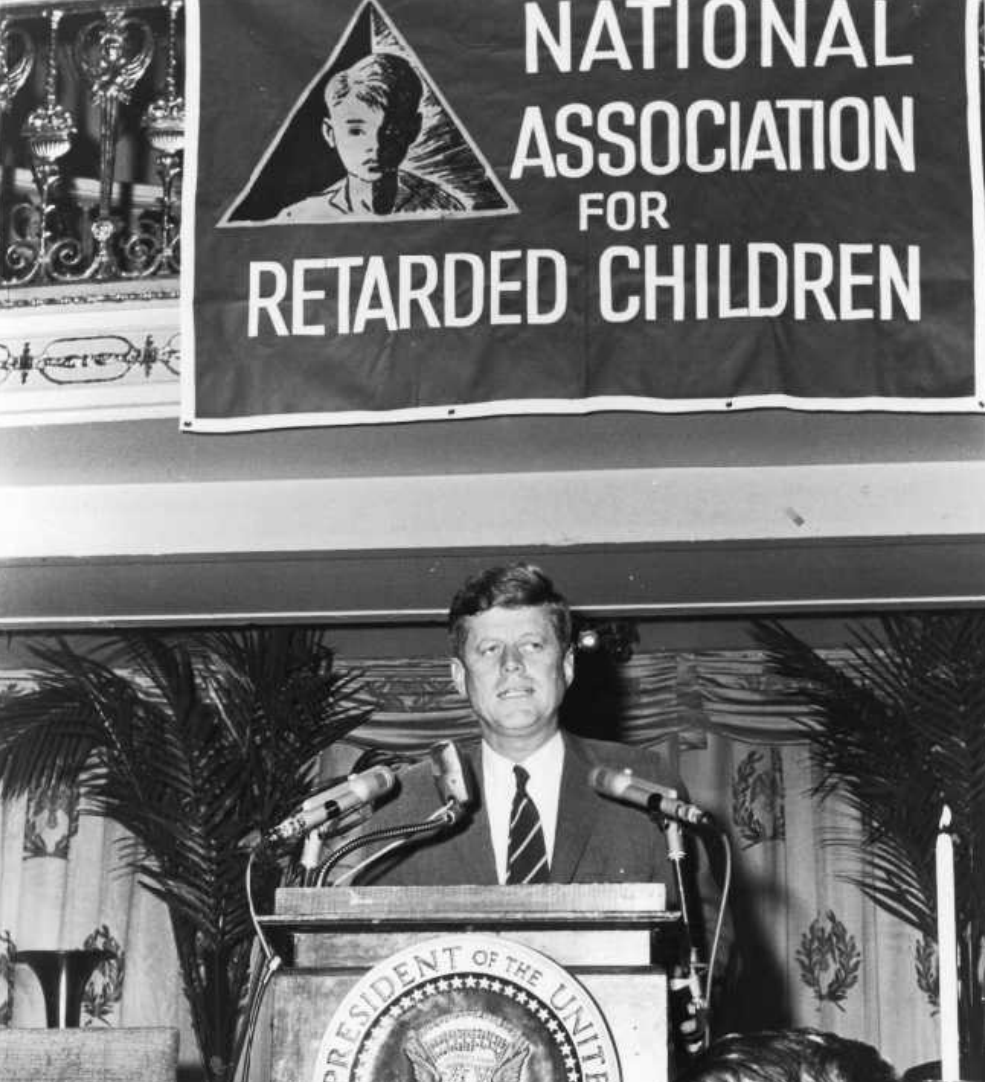Parents organize a local advocacy group: Courtesy of the ARC collection, early 1950's
PARC v. Pennsylvania:
Pioneering the Right to Education for Children with Cognitive Impairments
Parents' Movement
Parents Organize
In the late 1940's and early 1950's, the parents of cognitively impaired children began to collectively voice frustration over the lack of government funded resources and educational programs available to their children.
In 1953, these local support and advocacy groups came together to form the National Association for Retarded Children (NARC).
The NARC quickly became the largest advocacy group for the cognitively impaired, united under the mantra that all "retarded children can be helped!"
Throughout the 1950's and 60's, NARC built relationships with influential politicians and financial donors. However, NARC refrained from initiating litigation against the State, fearing that it would alienate them from these partners.
As a result, by 1969, cognitively impaired children were still regularly denied admission to public schools.
NARC advertisement: Courtesy of the Minnesota Council on Developmental Disabilities, 1950's

Community activity for children with cognitive impairments organized by the NARC: Courtesy of the ARC collection, 1950's

President Kennedy addresses the 13th annual Convention Luncheon of the NARC: Private collection of M. L. Wehmeyer, October 24, 1963
Partners in Progress Convention of 1969
I hope you will let me ask you a very blunt question: What progress? And which partners? For 19 years, you have tried to be nice. You've kept quiet too long ... Our government has three parts, the legislative, the executive, and the judicial, and you've never used the judicial part. It is time to go to the courts."
~ Gunnar Dwybad, keynote speaker at the Partners in Progress Convention, May 8, 1969
In 1969, the Pennsylvania branch of the NARC, the Pennsylvania Association for Retarded Children (PARC), held the Partners in Progress Convention.
At this event, PARC members recognized that their current approach to securing the right to education for all cognitively impaired children was ineffective.
Thus, on May 8, 1969, PARC representatives took a radical step by voting to initiate a class action lawsuit against the Commonwealth of Pennsylvania.